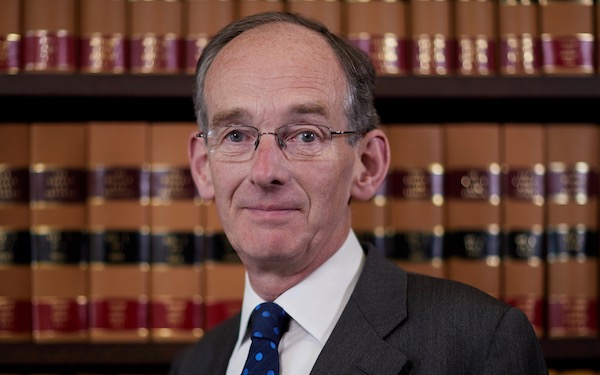
The courts will stop monitoring the regulation of unregistered placements for children deprived of their liberty because of the “considerable burdens” this placed on the justice system.
The president of the court’s family division issued revised guidance removing the provision this week, four years after it was introduced to deal with a marked increase in applications through the family courts to deprive children of their liberty.
The practice, which has continued to increase in frequency, has often involved applicants – primarily councils – calling on the High Court to use its “inherent jurisdiction” to approve a placement for child. The jurisdiction is the court’s backstop power to protect vulnerable people where there is no other means of doing so.
While such placements will often be in regulated children’s homes, many applications have been for placement in unregistered – and therefore illegal – settings because of the absence of alternatives.
Court monitoring of unregistered placements
The 2019 guidance, issued by family court president Sir Andrew McFarlane, said that the court would “need to be satisfied that steps are being taken to apply for the necessary registration” because of the vulnerability of the children and young people concerned. It said this should involve:
- Requiring, through its court order, that the application for registration is submitted to Ofsted or the Care Inspectorate Wales (CIW) within seven working days of the order being made.
- Asking the local authority to advise it of whether the application has been made, within 10 days of the order.
- Should step 2 not happen, listing the matter for a further immediate hearing.
- Once it is satisfied that the registration application has been made, carrying out a review of the registration status after 12 weeks.
But in the revised guidance, Sir Andrew said he was no longer urging judges to take these steps.
‘Considerable burdens on court system’
“This process places very considerable burdens on the court system, but more importantly, is not part of the court’s functions,” he wrote. “Ofsted and CIW are the regulatory bodies, with statutory powers as to oversight of children’s homes, including where a child is placed in an unregistered home.
“It is not for the court to become a regulatory body or the overseer of the regulatory process.”
Though unregistered placements are illegal, Sir Andrew’s ruling in A Mother v Derby City Council [2021] EWCA stated that the High Court could use its inherent jurisdiction to authorise such placements “where conditions of imperative necessity require”.
Under the revised guidance, when a local authority is proposing an unregistered placement as part of an application under the inherent jurisdiction, the courts should ask why it considered this is in the child’s best interests.
They may also order the local authority to inform Ofsted or CIW within seven days about such a placement.
Sir Andrew stressed that the new guidance did not detract from the principle that “there are not usually great benefits for the child or young person in being placed in a registered rather than unregistered placement”.
Rising numbers of children deprived of liberty
In total, 1,249 children and young people were subject to a deprivation of liberty (DoL) application, from July 2022 to June 2023, according to data from the Nuffield Family Justice Observatory. Though this is not a like-for-like comparison, Cafcass figures indicated there were 103 in 2017-18, rising to 579 in 2021-22.
The NJFO found 53.8% of children subject to DoL applications in July and August 2022 were placed in at least one unregistered placement up to the end of last year.
Their placement in settings lacking regulatory oversight came despite the children and young people concerned having multiple and complex needs including mental health problems, behavioural and emotional difficulties, often rooted in childhood adversity.
“No child should live in unsafe, unsuitable accommodation and we should be working collectively to maintain a sharp focus on improving standards for all children in care,” said the chair of the ADCS’s resources & strategy committee, Chris Munday. “However, local authorities have long faced difficulty in accessing the right accommodation for children in our care. There is a need for a national solution to increase the sufficiency of affordable and safe, stable homes.”
Cost of placements ‘financially crippling’
He added: “We face an ever-shrinking number of private providers who can pick and choose which children to accept and at what cost despite local authorities being the sole purchaser. ADCS has long called for the government to initiate a shift away from profiteering in the placements market and invest, or help local authorities invest in, new, not for profit provision.
“The cost of placements is very worrying and financially crippling, but we also question whether the current offer meets the needs of children today, particularly where their needs are increasingly complex.”
An Ofsted spokesperson said: “We remain concerned about any use of unregistered children’s homes. Too often we know that children deprived of their liberty are being placed in illegal unregistered settings – where we do not know if children are safe or being cared for by people who are able to meet their needs.
“It is vital that providers register to ensure that our most vulnerable children are only being placed in suitable settings. That is why we recently published guidance to make the legal position absolutely clear.”



 Assistive technology and dementia: practice tips
Assistive technology and dementia: practice tips  A trauma-informed approach to social work: practice tips
A trauma-informed approach to social work: practice tips 




 Find out how to develop your emotional resilience with our free downloadable guide
Find out how to develop your emotional resilience with our free downloadable guide  Develop your social work career with Community Care’s Careers and Training Guide
Develop your social work career with Community Care’s Careers and Training Guide  ‘Dear Sajid Javid: please end the inappropriate detention of autistic people and those with learning disabilities’
‘Dear Sajid Javid: please end the inappropriate detention of autistic people and those with learning disabilities’ Ofsted calls for power to scrutinise children’s home groups
Ofsted calls for power to scrutinise children’s home groups Seven in eight commissioners paying below ‘minimum rate for home care’
Seven in eight commissioners paying below ‘minimum rate for home care’
 Facebook
Facebook X
X LinkedIn
LinkedIn Instagram
Instagram
The removal of the courts oversight of unregistered placements for children Subject to DoLs orders simply gives private providers further leeway to profit from children’s social care !!
Private companies profertieering from children in unregistered, unregulated poor care placements.
The same companies profertieering from those adults with severe learning disabilities and Autism who lack capacity to protect themselves.
Courts now to stop monitoring regulation of these placements because it is a burden and costs too great. Courts and authorities are failing the most vulnerable in society.
I agree with everything you have said.
It’s illegal to put dols orders on children. It’s says it on the form that it’s not for people under 18